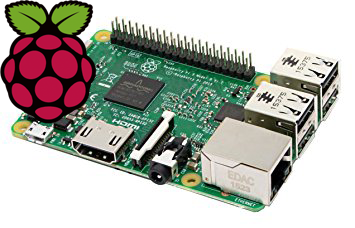Off grid means different things to different people. At the very basic, it means off the power grid. For some, it means completely removed from all technology, but we aren’t talking about that. Because we are using technology and it requires power and works best with some sort of internet access, we are just talking about limiting us off the utilities grid.
How does the Pi work for that?
Well, its small, it is USB-powered, and the newest ones all have WiFi so it can be thrown just about anywhere.
With our off grid project, the house will have DC and AC outlets. DC outlets consist of two different types: the old car, cigarette lighter types, and USB-A or -C. With USB, the amps will be determined by the load from the batteries, but otherwise should be safe for a Pi. I haven’t done this though, so your mileage may vary. If I can just connect a USB plug to a 12v source and have it the right amps and voltage, well then we are golden.
But what can we do with it?
That’s where things get interesting. The Raspberry Pi is a computer. It is a small, basically credit card size device, but its still a computer. Put a basic operating system on it and it can be used as a normal desktop with a keyboard and monitor.
The fun though is when it is set up with something else, made to work properly, and thrown in a hiding place to be used remotely and forgotten. Let it hide, it is doing its work just fine.
With that, here’s a few ideas (starting points really, you have to figure out how to build them, I haven’t filled in those details):
- Plex Media Server: You are sitting at home, got some power, but nothing to do. Maybe you have a tablet, or a small TV. Throw Plex Media Server on top of Raspberry Pi OS and you can stream all your content to any of your devices in your house. You have to get the media somehow, but once you have it, collect away.
- OpenMediaVault: Make your own personal Network Attached Storage.
- Seedbox: Torrents aren’t all bad, are they?
- MotionEyeOS: Security System that doesn’t have a monthly cost and stores everything locally. Get a nice view of your property, entrances, whatever. Maybe throw one in a weatherproof box out in the woods somewhere that is just within WiFi range to catch animals passing by.
- Pantry System: Ok, this one I built myself. With a web server, a database, and some PHP, I coded an updatable web page that displayed everything we had on hand. It worked well, then I, well, I don’t know what happened. I lost the Pi or SD card it was on and I don’t think I made a backup.
- RetroPie: With the right parts, this can be handheld. Otherwise connect it to a TV and enjoy some video games.
- Weather Station: I’ve read it done, but I cannot attest to its use over built and purchased systems. It is interesting to toy with though.
